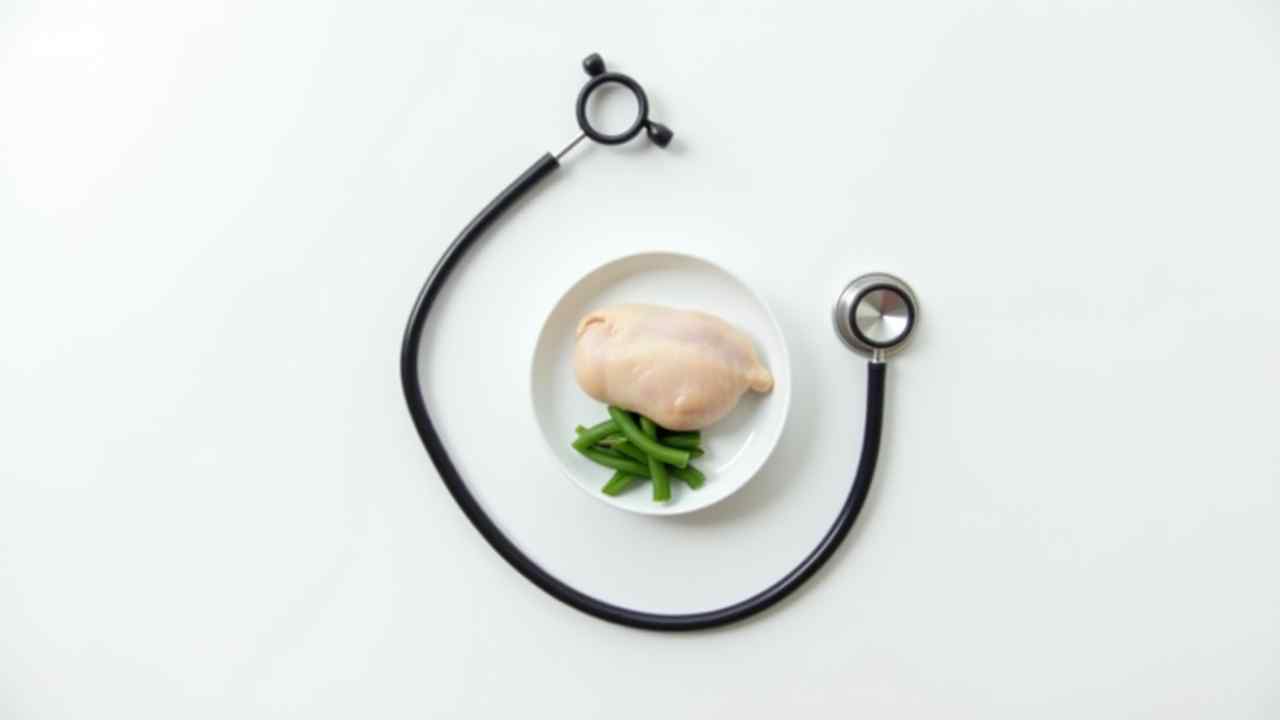
🩺 What is a 1000-Calorie Diet? (A Guide to This Medical Plan & Its Risks)
🩺 What is a 1000-Calorie Diet? (A Guide to This Medical Plan) 🩺
❗ CRITICAL HEALTH WARNING: A 1000-calorie diet is classified as a Very Low-Calorie Diet (VLCD). It is not safe or appropriate for the average person and can lead to serious health complications. This type of diet should only be undertaken under the strict supervision of a healthcare professional.
You may have heard about a 1000-calorie diet for rapid weight loss. While the idea might seem appealing, this level of calorie restriction is a serious medical intervention. It is not a casual or do-it-yourself diet plan. It is a tool used by doctors in specific situations.
This guide will explain what a 1000-calorie diet is for informational purposes. We will cover why it is used and, most importantly, the significant risks involved. Your safety and health are the top priority. ⚠️
🤔 Who is a 1000-Calorie Diet Prescribed For?
A doctor would only prescribe a diet this low in calories in very specific circumstances. It is a short-term plan, not a long-term lifestyle. It is used when the benefits of rapid weight loss outweigh the potential risks. This is always determined by a medical professional.
This diet is typically reserved for individuals with obesity. This usually means a Body Mass Index (BMI) over 30. It is especially for those with serious weight-related health conditions. These can include type 2 diabetes or heart disease.
Sometimes, it is used for a few weeks before bariatric surgery. Rapid weight loss can shrink the liver. This makes the surgical procedure much safer. In all cases, the patient is closely monitored by a medical team.
⚠️ What Are the Serious Risks of Following a 1000-Calorie Diet?
Following a 1000-calorie diet on your own is dangerous. Your body requires a certain amount of energy, protein, and nutrients to function. Severely restricting this intake can cause significant problems. The risks are very real.
Can It Cause Nutrient Deficiencies?
Yes. It is nearly impossible to get all the vitamins and minerals your body needs from just 1000 calories. This can lead to serious deficiencies. That is why medically supervised plans always include specific supplements.
What About Muscle Loss?
When you lose weight this quickly, you do not just lose fat. You also lose a significant amount of muscle mass. Losing muscle is very unhealthy. It slows down your metabolism, which makes it easier to regain weight later.
Are There Other Side Effects?
Yes, many side effects are common. These can include extreme fatigue, dizziness, and constipation. Hair loss can also occur. One of the most serious risks is the development of painful gallstones due to rapid weight loss.
🍽️ What is a Sample 1000-Calorie Meal Plan?
❗ Disclaimer: This is a generic example of what a medically supervised plan might look like. It is NOT a recommendation to follow on your own. Notice how small the portions are.
- Breakfast (approx. 250 calories): 1 cup of plain, non-fat Greek yogurt with 1/2 cup of berries.
- Lunch (approx. 300 calories): A 4-ounce baked, skinless chicken breast with a large side of steamed green beans.
- Dinner (approx. 350 calories): A 4-ounce baked cod fillet with a large portion of steamed asparagus and cauliflower.
- Snack (approx. 100 calories): A small apple.
As you can see, a 1000-calorie diet does not allow for much food. It requires careful planning to maximize nutrition. This is why a registered dietitian's help is essential. They ensure the plan is as safe as possible.
For safe and sustainable weight loss, a more moderate approach is recommended. A balanced diet with a smaller calorie deficit is far healthier. It is also more likely to lead to lasting results. Always prioritize your health and consult a doctor. 🩺